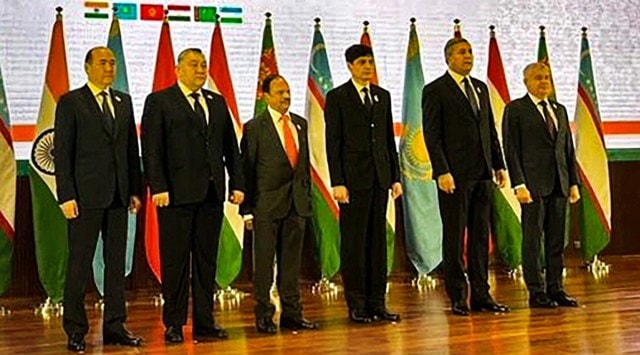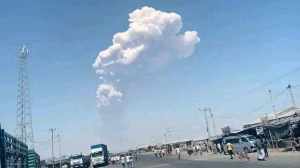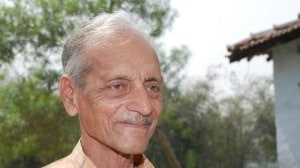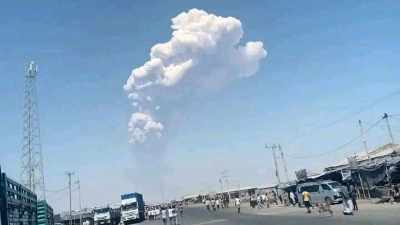National Security Adviser (NSA) Ajit Doval on Tuesday said that financing is the “lifeblood” of terrorism and countering it should be a priority, as he hosted his counterparts from Central Asian countries in New Delhi to discuss terrorism, situation in Afghanistan, and other regional issues.
Speaking at the first meeting of the NSAs of India and Central Asian countries, Doval focused on the challenge of terrorism, the situation in Afghanistan and the importance of regional connectivity projects.

The NSAs of India, Kazakhstan, the Kyrgyz Republic, Tajikistan and Uzbekistan participated in the meeting. Turkmenistan was represented by its ambassador in New Delhi. Doval chaired the meeting.
 NSA Ajit Doval at the India-Central Asia meeting of National Security Advisors in New Delhi on Tuesday. (PTI)
NSA Ajit Doval at the India-Central Asia meeting of National Security Advisors in New Delhi on Tuesday. (PTI)
A joint communique issued after the meeting said that the NSAs of India and the Central Asia countries discussed the current situation in Afghanistan and its impact on the security and stability of the region, reiterating strong support for a “peaceful, stable and secure” Afghanistan. The security officials also emphasised that the territory of Afghanistan should not be used for “sheltering, training, planning or financing any terrorist acts”.
Earlier, Doval said, “Financing of terrorism is its lifeblood and countering terror financing should be an equal priority for all of us. We should also call on all UN members to fulfil obligations enshrined in relevant counter-terror conventions and protocols, and refrain from providing any form of support to entities or persons involved in terrorist acts,” he said.
The communique said the officials agreed that the expansion of terrorist propaganda, recruitment and fund-raising efforts have serious security implications for the region, and therefore, a collective and coordinated response is essential.
“The misuse of new and emerging technologies, arms and drugs trafficking, using terrorist proxies for cross-border terrorism, abuse of cyberspace to spread disinformation and unmanned aerial systems present new challenges in counter-terrorism efforts and call for collective action,” it said. The mentioning of cross-border terrorism is seen as a reference to Pakistan from India’s perspective.
Story continues below this ad
ExplainedDialogue Diplomacy
This is the first time that NSAs of Kazakhstan, Kyrgyzstan, Tajikistan and Uzbekistan are in Delhi for a high-level security meeting, which flows from the India-Central Asia virtual summit that took place in January this year. In November last year, India hosted a regional dialogue on the Afghanistan situation that was attended by NSAs of Russia, Iran, Kazakhstan, Kyrgyzstan, Tajikistan, Turkmenistan and Uzbekistan. The NSAs will be meeting again under the rubric of Shanghai Cooperation Organisation in India next year as well.
The meeting also strongly called for the early adoption of the UN Comprehensive Convention on International Terrorism to effectively deal with the menace.
The security officials reaffirmed the importance of UNSC Resolution 2593 (2021) that “no terrorist organisation including those designated by the UN Security Council Resolution 1267 should be provided sanctuary or allowed to use the territory of Afghanistan”.
The NSAs noted the current deteriorating humanitarian situation and the need to jointly act to provide assistance to the people of Afghanistan, the communique said.
It said the meeting condemned in the strongest terms all forms of terrorism and underscored the need to work collectively to fight this menace.
Story continues below this ad
Doval also said that connectivity initiatives should be consultative, transparent and participatory. “While expanding connectivity, it is important to ensure that connectivity initiatives are consultative, transparent and participatory, with respect for sovereignty and territorial integrity of all countries,” he said, in an oblique reference to China’s BRI.
The joint communique said that it was agreed that connectivity initiatives should be based on principles of transparency, and respect for sovereignty and territorial integrity of all countries, in what is seen as a tacit endorsement of New Delhi’s views on China’s Belt and Road Initiative (BRI).
Describing Central Asia as India’s “extended neighbourhood”, Doval said New Delhi accords “highest priority” to this region, adding Afghanistan is an important issue “concerning all of us”.
The meeting chaired by Doval also emphasised the need for respecting Afghanistan’s sovereignty, unity and territorial integrity and urged non-interference in its internal affairs.



 NSA Ajit Doval at the India-Central Asia meeting of National Security Advisors in New Delhi on Tuesday. (PTI)
NSA Ajit Doval at the India-Central Asia meeting of National Security Advisors in New Delhi on Tuesday. (PTI)





